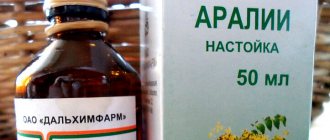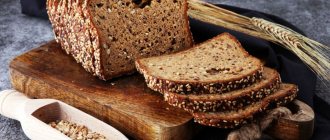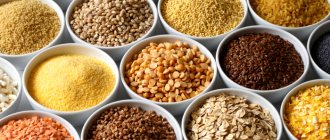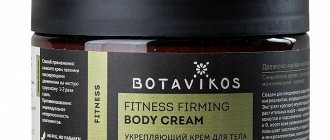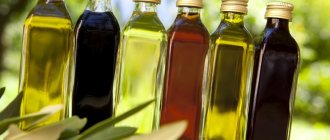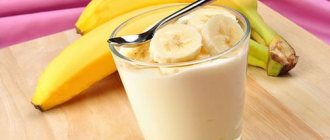Every follower of the diet is primarily concerned with ensuring that the diet is healthy and correct. Therefore, you probably have a question: what vegetable oil is the healthiest for the body? There is simply an incredible assortment on store shelves now. Some of them, such as flax and sunflower, were well known to our ancestors. Others, such as avocado or cocoa oil, have come to us not so long ago.
It’s good if you have several types of vegetable oils at home, since they contain various vitamins, unique fatty acids, micro- and macroelements in various proportions. They differ in taste, smell, and properties. Some oils are good in salads, others are suitable for frying, and others are used in baking. Let's try to figure out how the most popular and healthy oils differ from each other.
What is the calorie content of oil
Oils contain a lot of calories, because they contain practically only pure fat. For those who monitor their diet and figure and control their daily calorie intake, the question of the calorie content of oil may arise, for example, when dressing salads with oil or adding it to other dishes .
Which oil has the least calories, which oil is the healthiest and which, on the contrary, is the most harmful, how many calories are in a spoonful of oil and other questions arise for people watching their diet. We will try to answer them. Information on the calorie content of oils is contained in special tables. We offer you a table showing the calorie content of the most popular oils.
Calorie content and composition of oil
Oil is an indispensable product in the kitchen and one of the main ingredients in the preparation of many dishes. Each has its own calorie content and glycemic index, which both diabetics and people watching their own weight should know about.
Varieties
People, and especially women, have repeatedly wondered which oil is lower in calories and more beneficial for the body. Cream is obtained by using cream in the production process. They, in turn, can be whole or fermented. If we talk specifically about dairy products, the number of calories in butter is higher than in others. It is used both for frying and as one of the main ingredients in dough, sauces and other dishes.
If we talk in more detail about palm oil, it is obtained from the fruits that the palm tree produces, hence the name. Despite the huge number of negative reviews, it is edible and even has its own benefits for the human body. Its chemical composition contains a lot of beta-carotene, which is why the palm product has a red-orange color. In cooking, it is actively used to create confectionery products, since it perfectly replaces other fats and does not spread. You can find the product in mayonnaise, cheese products, and soup mixtures, but you rarely see it in a bottle in the kitchen of a modern housewife.
Oil calorie table
This table shows the energy value of the most commonly used oils.
Calorie content of vegetable oils (per 100 g of product):
- The calorie content of corn oil is 900 kcal;
- The calorie content of olive oil is 824 kcal;
- The calorie content of sunflower oil is 900 kcal;
- The calorie content of vegetable soybean oil is 900 kcal;
- The calorie content of nut oil is 570 kcal;
- The calorie content of palm oil is 884 kcal.
The calorie content of butter (per 100 g of product) is 750 kcal;
The calorie content of ghee (per 100 g of product) is 885 kcal.
Rating of vegetable oils by usefulness: TOP-7
Different vegetable oils have different compositions. This means that they have different tastes and have different effects on our body. Which oil can be called the healthiest? Let's figure it out now.
Sunflower oil
The real “king of cuisine”, and not only Russian. Can be used for the body (masks, massages) and for cooking. In terms of price and quality ratio, sunflower oil is the best option for everyone who cares about their health, but cannot yet afford anything more exotic. A characteristic feature is the high content of lecithin. This substance, which is a combination of phospholipids and triglycerides, has a beneficial effect on the liver, stabilizes the functioning of the nervous system and helps fight stress.
Cacao butter
Not only chocolate is made from cocoa beans. Cocoa butter contains many vitamins, flavonoids, antioxidants and amino acids. It has a pronounced antiseptic effect, is often used in the treatment of skin diseases and reduces the risk of developing cardiovascular diseases. It is sold in bars that are easily broken by hand and melt when the temperature rises to 30–35 °C. Before use, the oil is melted in a water bath.
Sesame oil
The second name is sesame oil. Pressed from the seeds of the sesame tree. It boasts a high content of Omega-6 (up to 47%) and Omega-9 (up to 45%). It has a positive effect on the condition of the heart, blood vessels and digestive system. Sesame or flaxseed oil is recommended to drink for hypertension, atherosclerosis and gastric ulcers.
Walnut oil
It came into Russian cuisine from Mediterranean and Caucasian cuisine. Walnut oil contains a lot of retinol, tocopherol and linoleic acid, so it can slow down the aging process and strengthens the immune system. In addition, it can be used to reduce stomach acidity, prevent gastritis and prepare cosmetics (lotions, masks, creams, etc.).
Pumpkin seed oil
An excellent remedy for poisoning and gastrointestinal diseases. Well softens the skin and hair, stabilizes the functioning of the endocrine system. Contains a lot of polyunsaturated fats and vitamins E and B. Produced by directly squeezing pumpkin seeds. It has a specific smell and a pleasant sweetish taste, so it is often used in the preparation of desserts and salads.
Linseed oil
Vegetable oil with a high content of Omega-3 (up to 50%), Omega-6 (up to 20%) and vitamins A, E, B and P. It strengthens the immune system, stimulates the production of insulin and regulates the functioning of the endocrine system. Doctors recommend drinking flaxseed oil for patients with diabetes and people suffering from acute and chronic gastrointestinal diseases.
The only drawback is rapid oxidation. Natural flaxseed oil can be stored for no more than 2 weeks from the date of production.
Corn oil
The absolute record holder for vitamin E content. Corn oil contains twice as much of it as olive oil. Enough of polyunsaturated fats, and tocopherol with retinol and thiamine. The oil is well absorbed and helps fight diseases of the liver and digestive system. It also speeds up metabolism and reduces cholesterol levels.
Corn oil is a dietary product. But this does not mean that it cannot be used for frying or baking. On the contrary, it complements the first and second courses well. But do not forget that unrefined corn oil does not tolerate high temperatures and quickly begins to smoke in a frying pan.
Palm oil in nutrition
In recent years, palm oil has regularly become a topic around which serious passions flare up. Adding it to food makes it cheap but hazardous to health. What are the features of palm oil?
The composition and physicochemical properties of palm oil make it, the only vegetable oil, an almost complete analogue of animal fats. It is semi-solid with a high melting point. It is used for the preparation of various food products (mayonnaise, margarine, confectionery fats, soup mixtures, confectionery glazes, dairy products, baked goods, etc.) and as a frying fat. It can extend the shelf life of products and also reduce the cost of their production.
Why is palm oil harmful in the diet? After all, it contains the same fatty acids and vitamins that are found in other vegetable oils, and its calorie content is even lower than, for example, the calorie content of sunflower oil (although higher than the calorie content of butter or nut oil). It contains both microelements and beneficial substances, such as squalene, phospholipids, magnesium, phytosterols, coenzyme Q10, etc.
The harm of palm oil is that, due to its refractory structure, it is very difficult to absorb in the body. Its melting point is higher than body temperature - that is, the body cannot digest and process it, which can lead to digestive problems - palm oil envelops the walls of the stomach and intestines, preventing the absorption of beneficial substances from food. In addition to antioxidants, palm oil also contains carcinogens, that is, it promotes the development of cancer, and it also contains cholesterol and leads to atherosclerosis. The presence of palm oil in the diet of children is especially dangerous, as it impairs the nutrition of the child’s body and, consequently, disrupts the child’s development, which can lead to very bad consequences.
Grapeseed oil for frying. What oil is best for frying? Oil review
The debate about what is the right way to cook food has been going on for several decades.
What oil is best for frying? Scientific information is constantly changing, and besides, sometimes some food concern aggressively enters into the discussion with an advertisement for its product and changes the perception of part of the public.
For consumers, only the opinion of experts is really important, although it should be taken with a certain restraint.
Scientists' opinion on the best oil for frying
When drawing conclusions about how useful a particular fat is for frying, scientists do not take into account the issue of taste. The fact is that at high temperatures, changes occur in the structure of the oil and various substances harmful to health may arise. And this is what is being discussed in various analyses. In general, it is indicated that those fats that contain monounsaturated fatty acids are better suited for frying. Those in which polyunsaturated fats predominate are better for cold cooking.
Salo
Both pork and goose are suitable, although the latter usually has a higher water content. Therefore, more of it is required for cooking. Lard can be used for excellent cooking; it copes well with high temperatures, but has a high content of saturated acids. And pork is still full of cholesterol. People who lead a healthy lifestyle need to control their consumption.
Palm oil
Very suitable for frying, but, unfortunately, like lard, it has a high content of saturated acids.
Coconut oil
A similar case is with lard and palm lard. Great for preparing a variety of dishes, but be careful with calories and cholesterol!
Rapeseed oil
Refined is often called one of the best oils for frying in terms of saturated acid content. It has another advantage: after frying, it is well absorbed into napkins, and thanks to this, dishes turn out to be somewhat healthier.
Sunflower oil
In refined form, it is also a quality frying oil. Unrefined is only suitable for short cooking and stewing. Of course, if you like a specific taste.
Rice oil
It is very good to cook with, but unfortunately the high price is an obstacle. At high temperatures it overcooks very slowly and has a high content of natural antioxidants.
Corn oil
A universal product. It can be used for frying, stewing and deep-frying. Does not produce any harmful compounds. It is used sparingly, does not smoke and does not burn.
Olive oil
Natural (virgin) is ideal for salads and very quick cooking of vegetables, pasta, frying onions until translucent, etc. Is it possible to fry in olive oil? The usual way is not worth it.
If you want to cook some breaded foods where you need to keep the oil at high temperature for a long time, it is better to choose refined oil, which is not at all suitable for cold cooking.
Butter
For short-term frying (for example, scrambled eggs, toast or roasting vegetables for soup), it can be used, but if heated for a long time, it contains dangerous substances, so it is very unsuitable for this.
But if you heat it, it changes its qualities and withstands a higher heating point.
Examples of unsuitable oils that should not be used for frying at all:
- from grape seeds,
- sesame,
- flaxseed
- soft margarine.
With hydrogenated fats, things are a little more complicated. Some are very high quality, others are quite the opposite, especially those that are cheaper, so it is advisable to avoid them when frying.
Thus, it turns out that there should be at least two bottles of oil on the shelf - one for frying, and the second for cold dishes. Well, before you succumb to the calls of another miracle oil advertisement, remember your everyday experience. Why exchange good things for dubious better ones?
Diet oil
Due to the high calorie content of oil, it is often thoughtlessly excluded from the diet during diets . In fact, a person needs oil - after all, without fats in the body, many processes simply cannot occur. Therefore, you should not completely give up eating fats. But you need to replace harmful oils and fats in your diet with healthy ones. Refractory animal fats and trans fats (margarine) should be excluded from the diet, and healthy vegetable oils and fish oil should be left. These oils not only contain many vitamins and antioxidants, but also promote weight loss by speeding up metabolism and cleansing the body of waste and toxins; They also remove excess sugar from the blood and bad cholesterol, improve the condition of hair, nails and skin and strengthen the nervous system.
What are the benefits of vegetable oil?
Vegetable oil is an essential source of fatty acids, sterols and vitamins of group E. The former have powerful antibacterial properties, the latter reduce cholesterol levels, and the third normalize the functioning of the endocrine system and slow down the aging process.
The main thing is to know which oils are used for what, and choose trusted manufacturers. After all, the benefits of any product are determined by their composition, origin and manufacturing technology. Unrefined, cold-pressed oils contain more beneficial substances than refined ones, but are not suitable for frying. Refined ones are stored longer and are not afraid of high temperatures, but cannot boast of a high level of phosphatides and tocopherols, etc.
The best oils for the female body
The female body is different from the male one. How much is a topic for another discussion. But the fact that he experiences enormous stress when it comes to pregnancy and childbirth cannot be denied. Flaxseed oil will help support immunity during this period and balance hormonal levels. Alternatively, you can use hemp or argan.
Which oil is healthier for men?
Flaxseed oil is also beneficial for men. It stimulates testosterone production, improves blood circulation and cleanses blood vessels of cholesterol. If for some reason you can’t take it, you can buy pumpkin, fir or black cumin oil.
How many calories are in salads with vegetable oil?
Those who are losing weight are interested in how to choose a salad dressing with minimal fat content. The energy value of a vegetable salad without sauce is about 20 kcal, but if you add vegetable oil, the figure will increase by 35 kcal. This is even more than when using light mayonnaise.
Calorie content of salads when adding 1 tbsp. spoons of oil :
170 kcal; from cabbage
180 kcal; from carrots
190 kcal; from cucumbers
165 kcal; the vinaigrette
190 kcal; Greek
To get the maximum benefit from eating vegetable salads with dressing, you should choose only fresh, high-quality products. To enhance the taste of the snack, you can add a little garlic and mustard oil (890 kcal). How the calorie content of sour cream affects the value of salads can be read in our article.
Value of other oils
All vegetable oils have a beneficial effect on many systems and processes in the body. Peanut (899 kcal) makes eyelashes, nails and hair healthier and more well-groomed, hemp (899 kcal) improves skin condition, and flaxseed (898 kcal) enhances brain activity.
Oils with a value of 899 kcal are often used in cooking:
- coconut,
- Palm,
- soybean,
- sesame,
- corn.
It is advisable to avoid frequent consumption of dishes with palm oil due to the fact that it is difficult to digest by the digestive system and gradually destroys the immune system.
If you introduce various oils into your diet, you will soon notice a noticeable improvement in hair structure and skin condition, and an increase in performance. With proper use of the product, you can maintain a slim figure.
Source: https://sportandiet.ru/pitanie/skolko-kalorij-v-rastitelnom-masle-kalorijnost-podsolnechnogo-olivkovogo-i-dr/
Types of vegetable oils and their benefits
There is a huge variety of vegetable oils: sunflower, olive, flaxseed, hemp, milk thistle oil and so on. All of them, of course, have different properties. But the most important thing that unites them is the presence of healthy unsaturated fatty acids, which give the oil its calorie content. With the help of these acids, the construction of cell membranes and phospholipids occurs. And our brain is most sensitive to the lack of these acids in the body.
Flaxseed oil is the undisputed leader in its biological value, as it contains a huge amount of unsaturated fatty acids. This is an ideal natural remedy for the prevention and treatment of atherosclerosis, coronary heart disease and many other diseases associated with impaired blood flow, thrombosis, as well as cancer of various locations. The product contains linolenic acid (50%-70%) and vitamin E (50mg/100g). The daily norm is one to two tablespoons of oil per day.


